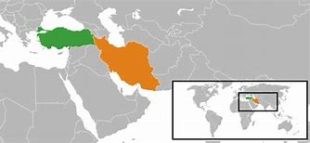Iran-HRM – From the first days of seizing power, Iran’s ruling regime provided the ground for suppressing Iranian women by imposing the mandatory Hijab on them. It tried to terrorize society with its repressive schemes.
The Iranian regime tries to repress Iranian women using the pretext of imposing the mandatory Hijab by sending its suppressive forces to the streets or issuing circulars to the offices.
With the beginning of the summer season, the clerical regime has adopted new repressive plans to step up pressuring and suppressing Iranian women.
On July 5, 2022, the mullahs’ president, Ebrahim Raisi opened the meeting of the Supreme Council of the Cultural Revolution, with new orders on the issue of Hijab.
He said the Iranian nation’s enemies are acting in an organized and planned manner, promoting corruption in Iran’s Islamic society. “In this way, they seek to undermine our moral base of support and our religious values.” He stressed the need to take all the necessary steps to counter the enemy’s attack.
The following report provides a glimpse of the repressive plans since the beginning of the summer of 2022.
Teaching comes next to observing the mandatory Hijab
On July 2, 2022, the semi-official Tasnim news agency reported the remarks by the Central Governor’s deputy for political, security, and social affairs at the Promotion of Virtue and Prevention of Vice Headquarters, Behnam Nazari. Tasnim reported:
“In promoting virtue and preventing vice, we focus on youths and school students. The Education Ministry should have a training course for teachers during the three-month summer vacation. Because in the first stage, teachers should have a proper cover, and teaching comes in the next stage.”
Iranian teachers and educators have been marching in the streets in recent months, protesting their difficult living conditions, demanding their minimum wages, and the release of their imprisoned colleagues.
Instead of addressing the teachers’ demands, the Iranian regime focuses on female teachers’ clothing. However, every human being must be free to choose their clothing.
Lack of freedom in the cyberspace
Nazari added, “The virtual space in the Central Province has been abandoned in the field of enjoining good and forbidding evil. There must be a written program.”
Behnam Nazari is thus paving the way for using virtual space to suppress people, especially Iranian women. The arrest and detention of Iranian citizens under the pretext of cyberspace’s illegal activities make headlines daily.
The Tasnim report also cited Mostafa Farrokhi, secretary of the Central Province’s Promotion of Virtue and Prevention of Vice. Farrokhi said: “Graduate students of Promotion of Virtue and Prevention of Vice should get involved in the neighborhoods of Arak and other cities. They should be active in social monitoring and control, give warnings, and make demands if needed.”
Farrokhi said, “All directors and heads of offices who chair the Promotion of Virtue and Prevention of Vice Councils in every system must pass training courses. They must be able to assess accurately and pursue this issue in the best possible manner in every system.”
Closure of coffee shops and restaurants for improper veiling
On July 3, 2022, the semi-official Enthekab news agency reported that SSF had sealed three restaurants in Qom because female clients had removed their veils. Entekhab wrote, “The restaurant owners were summoned to the State Security Force Department of Public Places to be dealt with according to the law.”
New restrictions on female government employees
In another development, the Promotion of Virtue and Prevention of Vice HQ issued a directive to government offices and organizations. The memo outlines the criteria for “Hijab and Chastity,” which imposes various new restrictions on female employees. They include the following:
Women are not allowed to use a head covering other than Maghna’eh and Chador. Maghna’eh is a headscarf that covers the neck, shoulders, and part of the chest. A chador is a head-to-toe black garment that covers the entire body.
They are not allowed to wear anything other than loose garbs and long manteaux.
They are not allowed to wear short, tight, and short sleeve manteaux.
They cannot wear manteaux above the knees and is open in the front.
They must use non-transparent stockings. They must not wear short and unconventional socks.
Shoes must be conventional and suitable for the work environment. Women must not wear high heels and unconventional shoes.
They must not wear makeup or manicure their hands.
They must not wear nail polish and artificial nails.
They must not use perfumes and eau de cologne with a sharp smell.
Improperly veiled women deprived of public services
On July 4, 2022, the semi-official Hamshahrionline reported:
“The deputy Prosecutor of Mashhad sent a letter to Mashhad’s Governor, asking him to refrain from providing services in banks and offices to individuals with improper veiling.”
The same report cited Esmail Rahmani, the deputy Prosecutor of Mashhad. He told a meeting, “We sent a letter to the Governorate and asked the governor of Mashhad to ban offering services in offices and banks to improperly veiled individuals.”
Rahmani reiterated, “The managers and directors of offices and banks are duty-bound to refuse services to individuals who do not observe the religious Hijab in offices.”
On July 5, 2022, the semi-official Khabarban news agency reported:
“The Prosecutor of Mashhad wrote a letter to the city’s Governor urging him to prevent the entry of improperly veiled women to metro stations. The prosecutor’s letter was circulated on social media. The letter said the municipality had been briefed on preventing the entry of improperly veiled women. The State Security Force Commander announced his readiness to deal with violators.”
In other news, the secretary of the Promotion of Virtue and Prevention of Vice HQ in Khorasan Razavi Province announced that 108 three-person teams were patrolling the city of Mashhad and assessing the situation of Hijab and Chastity. Iran Human Rights Monitor denounces the repressive plans of Iran’s ruling regime. The Iran HRM believes that mandatory Hijab is a clear violation of human rights. It calls on the UN special rapporteur on violence against women and all human rights organizations to hold the Iranian regime accountable for suppression of Iranian women and using violence against them.
 Shabtabnews In this dark night, I have lost my way – Arise from a corner, oh you the star of guidance.
Shabtabnews In this dark night, I have lost my way – Arise from a corner, oh you the star of guidance.



